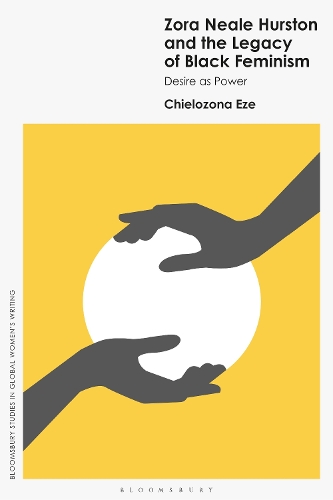
Zora Neale Hurston and the Legacy of Black Feminism: Desire as Power
(Hardback)
Publishing Details
Zora Neale Hurston and the Legacy of Black Feminism: Desire as Power
By (Author) Professor Chielozona Eze
Bloomsbury Publishing PLC
Bloomsbury Academic
8th January 2026
United Kingdom
Classifications
Professional and Scholarly
Non Fiction
Literary studies: fiction, novelists and prose writers
Feminism and feminist theory
813.52
Physical Properties
Hardback
232
Width 156mm, Height 234mm
Description
The first extended examination into the structure of influence of Zora Neale Hurstons work on major black women writers, an idea that has been widely accepted, this book explores Hurstons impact on such authors as Toni Morrison, Alice Walker, bell hooks, Rita Dove, and Tracy K. Smith, Ntozake Shange and Lorraine Hansberry.
Focusing specifically on the concept of desire as a liberatory idiom and as the highest expression of self-consciousness and personhood, Chielozona Eze delves into the ethical and social assumptions of Hurstons aesthetics and feminist visions and their manifestations in the works of the black women writers who came after her.
Through philosophical conceptions of desire, and zoning in on Hurstons Their Eyes were Watching God and its protagonist Janie Crawford, Eze unlocks crucial conceptual and analytic trajectories regarding debates on freedom, personhood and Black feminism, and how such rich interiority appears in key works by Black women. Surveying fiction including The Bluest Eye, Sula, and Song of Solomon, plays and poetry collections such as A Raisin in the Sun, For the Colored Girls Who Have Considered Suicide When the Rainbow is Enuf, The Yellow House on the Corner, Thomas and Beulah and finally, Stacy Abrams memoir Lead from the Outside, this book is a remarkable intervention with important implications for our times.
Author Bio
Chielozona Eze is Bernard J. Brommel Distinguished Research Professor of African and African American literary and cultural studies at Northeastern Illinois University, USA, and Extraordinary Professor of English at Stellenbosch University, South Africa. He has authored 20 articles in peer-reviewed journals and five monographs, one of which was on Alain Locke and the Harlem Renaissance.
